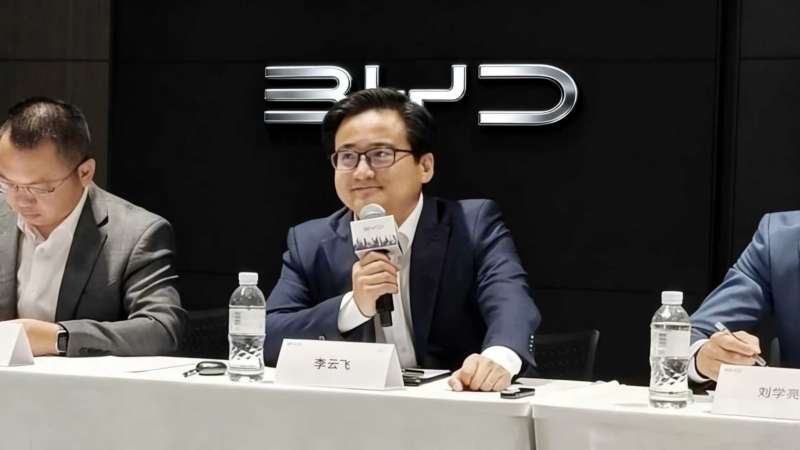BYD doubles down on LFP batteries, safety first for China’s EVs
At the 2025 Tokyo Motor Show, Li Yunfei, General Manager of Brand and Public Relations at BYD, emphasised the company’s continued commitment to lithium iron phosphate (LFP) battery technology and called for confidence in the Chinese EV battery sector, as reported by IT-home.
Li highlighted that China is the fastest-growing and most resource-rich market for EV batteries, with extensive research capabilities and a strong industrial base. While solid-state batteries are recognized for potential advantages, Li noted that current battery technologies are well-established, supported by a comprehensive charging infrastructure, and increasingly capable of meeting consumer needs, including improved cold-weather performance.
Addressing safety concerns, Li noted that online reports of fires in non-Li-ion phosphate (LFP) electric vehicles have contributed to perceptions that EV batteries are unsafe. He reiterated that consumers generally do not distinguish between LFP and ternary lithium batteries. BYD’s position is to maintain LFP as the standard across all current and future models. “Safety is fundamental. Safety is the greatest luxury. Safety is a basic product goal,” Li said.
Li cited the electrification of China’s public bus fleet over the past 15 years as evidence of the reliability of LFP batteries. The widespread adoption of LFP batteries in electric buses has prevented serious fire incidents, even when carrying dozens of passengers simultaneously. He emphasised that safety considerations guided the industry’s choice of LFP for buses, setting a precedent for private vehicles.
Data from January to September 2025 shows that LFP battery installations reached 493.9 GWh, a 42.5% year-on-year increase, capturing over 80% of the Chinese market and reinforcing its position as the dominant choice for EVs.
Li also highlighted the technical advantages of LFP batteries, noting their longer lifecycle compared to ternary lithium. LFP batteries typically maintain capacity beyond 3,500 charge-discharge cycles, compared to around 2,000 cycles for ternary lithium. LFP cells also exhibit higher thermal stability, with thermal runaway temperatures exceeding 500°C, compared with under 300°C for ternary lithium.
Li cautioned that some brands may continue to use ternary lithium to achieve longer ranges, but he urged the industry to prioritise safety as a baseline standard. “As a key participant in this sector, we hope all players contribute positively and prioritise safety as the baseline,” he said.



